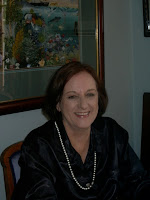Introducing Debora Holmes
We are thrilled to introduce one of our newer editors, Debora Holmes. Deb has joined us during the past year and works mainly with technical, educational, and Christian nonfiction.
Editor and writer Debora Holmes, Minneapolis, has been helping authors refine and publish their works for over a decade and a half. After graduating with English and music degrees from Gustavus Adolphus College in St. Peter, Minnesota, Debora also obtained a degree in pre-vet med (chemical, biological, and animal sciences) from the University of Minnesota before obtaining her Masters in Environmental Studies from The Evergreen State College, Olympia, Washington. Her many strengths include ongoing experience with a diverse set of authors and publications (from devotionals to technical government documents to all sorts of scientific papers), skill working with different levels of writing (including much experience with ESL authors), and the ability to switch effortlessly between topics and styles, including between American, British, and Canadian English; she is also a member of the Editors’ Association of Canada.
For close to a decade Debora was the full-time editor of Environmental Practice, the professional and ethics-centered journal of the National Association of Environmental Professionals (NAEP), for which she received the NAEP President’s Award among many other accolades. Besides the journal, she has ghostwritten, ghost-edited, copyedited, and proofread vast numbers of documents. Large projects before joining the IFW team have included, for example, listed editor (print and e-books) of The State of Sustainability Initiatives Review 2010 and 2014 (available HERE and HERE), books/reports for the Canadian Council of Academies, and hundreds of research articles; favorite projects include inspirational books for women and in the environmental sciences (a list of selected projects is available upon request). Debora comes from a line of Lutheran ministers (occasionally having the privilege to edit her father’s homilies) and is also employed as pianist/organist and vocalist at her church.
Deb is the mother of very different twin boys in the second grade, both of whom fascinate her and inspire a great deal of her writing, including writing on and for children with autism. 
Her favorite thing to do when not penning and editing is to grab the family’s energetic Jack Russell mix and experience the love of God through nature with her children. 
Believe It or Not, Editors Aren’t Born Writers
A month ago—in South Africa, just to ground the reader—I had to pack up my house and studio in Port Elizabeth and relocate to Durban. In the process, I came across stuff I’d written when I was about eighteen. All the writing from my early teenage days must have been binned at some point, since, at eighteen, I was clearly past rubbish writing. I do recall being convinced that my romance novel, grandly titled, Inner Flame, was going to be a best seller—no question about that. One look at this title and you realize it doesn’t get much more purple than that. God help the poor soul who dares venture between those pages, but I can laugh at myself and did indeed go there. Let’s say it wasn’t really a venture, but rather a stumble over purple prose, a million adjectives and adverbs, and fat grammatical and spelling errors (no spellcheck back then). The head-hopping alone made my head spin.
Then I got married and nothing much happened because I was too busy breeding. I found more manuscripts, written when I was about thirty. I was clearly done with procreation, and I had a divorce under my belt. This second stab at writing was an improvement, but still no cigar for good writing.
The point of this trip into the past? Editors aren’t born writing with skill.
To be honest, if Inner Flame came across my desk now, I would probably send the writer every tutorial IFW has, including a thousand writing links on Google, and then tell them to go hide in a cave and learn to string at least one coherent sentence together before wasting their money on an editor.
Here are a few pearls from Inner Flame. I left the spelling errors in, even though MS Word kindly changed them for me. I must have been fixated on the size of the room, since I sure didn’t need full stops. This was all handwritten before I finally scored a wondrous typewriter.
Felicity walk down the wide stairs to the room below, it was a vast ball room hung extravigantly with chandeliers, the floor was glossy marble, Victorian furniture was arranged in it a large grand piano of oak stood at the far end of the room like a majestic queen of furniture, heavy curtains of deep red velvet adorned massive windows and french doors.
The chandeliers must have smiled from above to see this pink whisp of a girl almost float accross the huge room, she might have been a thistledown in a field for all she compared in size to the room.
Here is another gem:
Felicity was a long time in falling asleep, she lay between the soft linen sheets staring out of huge windows at the moon, clouds drifted like silver ships across her face, as round as a disc.
I could go on, but I would hate to hear a reader had died from laughing. The head-hopping examples of my eighteen year-old brilliance will take too much space, so I won’t bore you with those pearls of delight. You will just have to trust me that they’re there with oak-leaf clusters.
I now challenge our other editors to expose their badly-written-gems’ bellies to the public.
Surely, if we once wrote this poorly, there’s hope for you. If you need help bringing your writing up to the next level, email us at IFWeditors@gmail.com. Besides simply editing your work, we explain why we’ve made the suggestions we make so you learn as you go. Need even more help? We offer coaching, which is a personalized tutoring service that teaches you the things we’ve learned over the years. One client told us she learned more from one of our edits than an entire MFA program in creative writing. We’re here to help. All you have to do is ask.
How to Take a Critique
If your story is the subject of a live critique, you have a great advantage. You’re going to receive immediate, honest feedback on your story. That is a privilege. It can also be hard to take. Most of us would like to bury our heads in the sand at this prospect.
I remember my first live critique. It was at a writer’s conference, and I was so nervous I’m surprised I didn’t pass out in the chair. Time was short so she concentrated on what would make the story better and she didn’t pull any punches. I felt like I’d been a few rounds in the ring by the time it was finished. It was probably the longest three minutes of my life.
It is difficult to take at first, but you do develop a thicker skin rather quickly. The most important rule to follow when receiving a critique of any kind, but especially with a live critique—do not argue.
As soon as the writer starts arguing with the person giving the feedback, all feedback stops.People will give you their opinion until you argue about it. Then they won’t bother anymore. As hard as it may be to take, you have to realize that what they are doing is a true gift. You cannot argue with readers once you have sold your work. They will interpret your story in their own way. You can’t control that. So you shouldn’t try to control the feedback from your audience either.
If the feedback is given in an on-line group, it is inevitable that you will receive an upsetting critique at some time or other.The distance of on-line relationships and the mood fluctuations of people will no doubt cause some to send off a hasty critique.
When this happens, do not write a note back arguing with the critique.
Really, don’t do it.
Let it sit for a day or two to gain a bit of distance and then re-read it.
Yes—re-read it.
You don’t have to agree with it. This is one person’s opinion, and that is all it is. But you might as well get something out of it.
So re-read the critique with an eye for what problems the person saw in the manuscript. You may not agree that these are problems, but you will see that there is a reason the person stopped there and made a comment. Perhaps they misinterpreted what you were trying to do. You may decide not do as they suggest, but you can see that you need to make your intentions clearer in that section.
Often, just the distance of a day will let you see that, while the critique might be a bit rude or brusque, there is something to be gleaned from it.
If you are paying a professional for a critique or an edit, you should find that the communication is professional and framed in a positive light. The editor should tell you what you’ve done right as well as point out any problems and give you suggestions on how to improve the story. But there is the occasional editor who will be more negative with his critique. If this happens, again, don’t argue.
If you don’t understand something, it’s perfectly fine to ask for further explanation.
If you can’t figure out why he made a certain comment, ask for clarification.
But don’t argue with him about it. You paid for the editor’s help and you want his opinion. You don’t have to agree with it.
In fact, receiving another critique from someone else can be a great help to you. It will show you which points really need to be changed and which are more a matter of personal taste.
If two individuals make the same point, you should look closer at their suggestions.
You need to develop a thick skin. That only comes from being subjected to critique repeatedly. Being able to use the critique to improve the work is the most important thing in making it. That is how you get better. The writer who gets published is the writer who perseveres.



